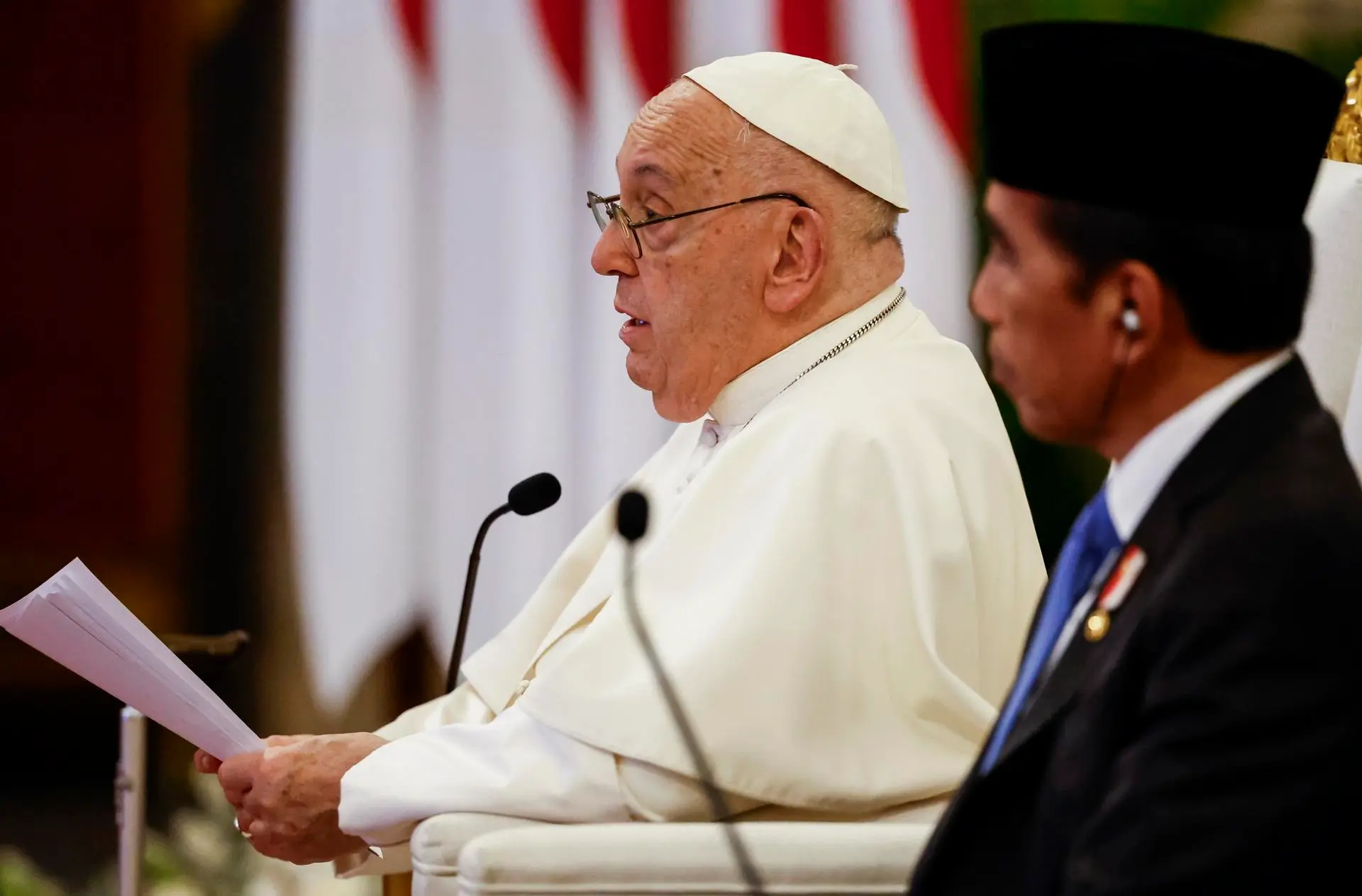Since his election as pope in 2013, Pope Francis has prioritized interfaith dialogue, particularly with the Muslim world, in response to the global rise of religious extremism. On his visit to Indonesia, the largest Muslim-majority nation, he met with Grand Imam Nasaruddin Umar at Istiqlal Mosque in Jakarta.
Together, they issued a joint declaration identifying two pressing global challenges: dehumanization and climate change. The pope highlighted how violence and conflict, often fueled by the misuse of religion, are dehumanizing people, especially vulnerable groups like women and children.
The declaration also focused on the environmental crisis, stressing that human exploitation of natural resources has caused natural disasters and unpredictable climate patterns. Indonesia, as a tropical archipelago, is particularly vulnerable to these changes, facing rising sea levels and frequent floods. Pope Francis’ visit to Istiqlal Mosque was symbolic, as the mosque is located next to a Catholic cathedral, connected by a “tunnel of friendship,” emphasizing the importance of unity between religions.

Pope Francis in Indonesia Strengthens Interfaith Unity and Addresses Global Challenges
Pope Francis’ trip to Indonesia, where 87% of the population is Muslim, also brought attention to the country’s 8.6 million Catholics and other religious minorities. His visit was seen as a message of solidarity, both for the minority Catholic population and for fostering interfaith cooperation in the country. Indonesian Catholics, like Father Hieronymus Sridanto Ariwobo, viewed the pope’s visit as a strengthening of their faith and an affirmation of the positive relationship between Muslims and Christians in the country.
Indonesia has historically practiced a moderate form of Islam, blending traditional beliefs and maintaining a peaceful coexistence with other religions. However, incidents of religious violence have occasionally disrupted this harmony, such as the church bombings in 2018 and 2021. In his address, Pope Francis called on all Indonesians to reject fundamentalism and violence, encouraging religious unity in a country marked by its diversity of ethnicities, cultures, and faiths.
This visit is part of a broader pattern of Pope Francis engaging with Muslim-majority countries, as seen in his trips to Egypt, Morocco, and the United Arab Emirates. In 2019, during his visit to Abu Dhabi, the pope signed a historic document on interfaith cooperation with the Grand Imam of Al-Azhar, Sheikh Ahmed al-Tayeb. These efforts reflect his dedication to building bridges between religions and promoting peace across the world, particularly between Christianity and Islam.
Many Indonesians, including Catholics like Milawati and Elia Dimas Indahputro, expressed hope that the pope’s visit would reinforce the values of tolerance and mutual respect among the nation’s diverse religious groups. Interfaith relationships are common in Indonesia, where people of different faiths, including mixed-religion couples, often live side by side in harmony. The pope’s message of unity and peace in Indonesia resonates with the country’s long-standing tradition of religious pluralism and coexistence.
